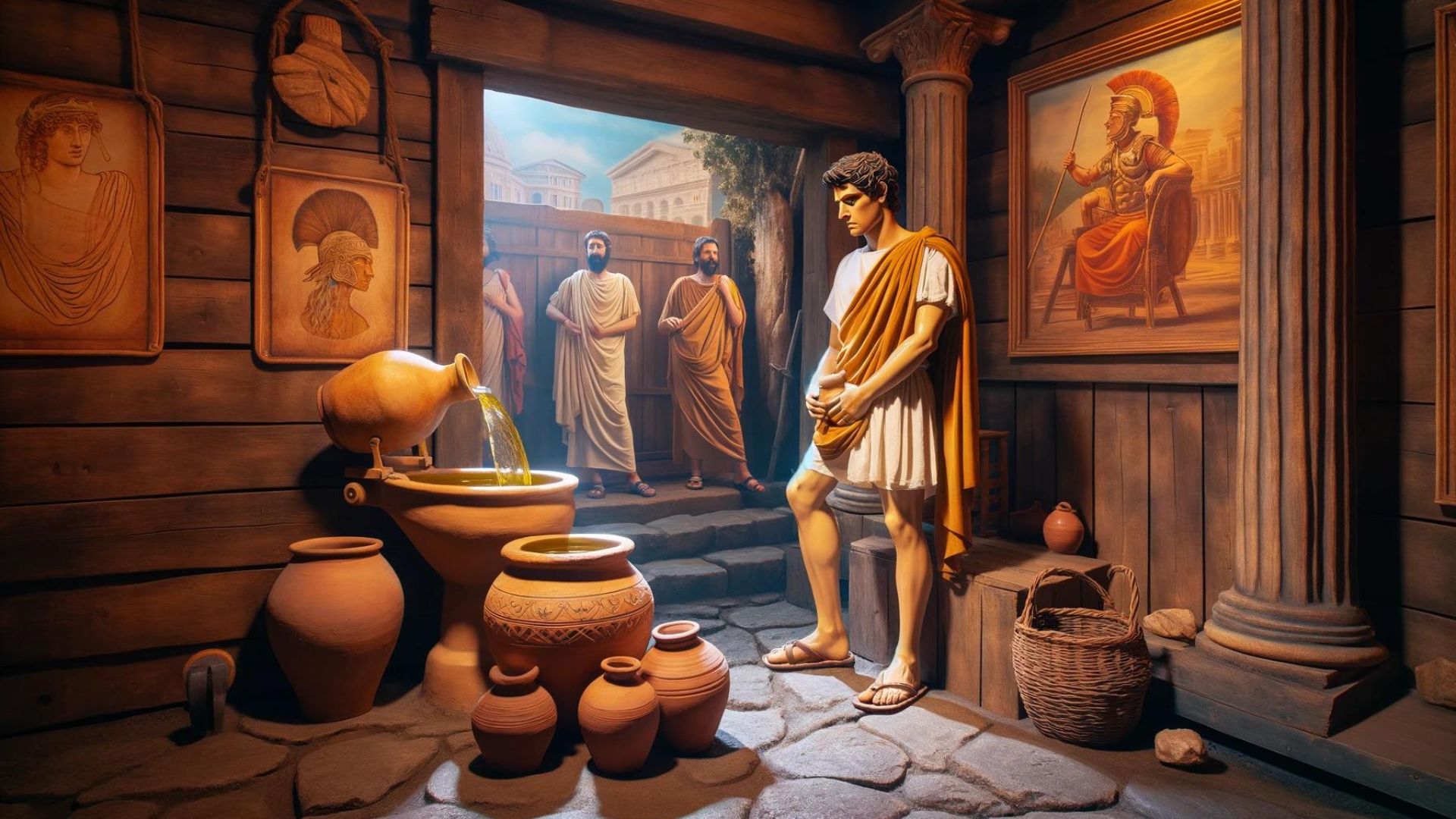History is full of surprising and sometimes shocking facts that reveal the diverse and inventive ways our ancestors lived. One such intriguing piece of history is the ancient Romans’ use of urine as mouthwash. While it may sound peculiar to modern sensibilities, this practice sheds light on the innovative and resourceful nature of Roman society. In this article, we will explore the reasons behind this unusual hygiene practice, the methods used, and the cultural context that made it commonplace.
The Science Behind Urine as Mouthwash
At first glance, the idea of using urine as mouthwash might seem bizarre. However, there was a method to the madness. Urine contains ammonia, which is a compound with strong cleaning and disinfectant properties. In the absence of modern dental hygiene products, ancient Romans discovered that ammonia could help whiten teeth and maintain oral health.
How Did the Practice Work?
Ancient Romans collected urine in special pots, which were often placed in public locations for convenience. The collected urine would undergo a natural chemical process, breaking down into ammonia. This ammonia-rich liquid was then used as a mouthwash to clean teeth and freshen breath.
Cultural Context and Acceptance
The use of urine as a cleaning agent was not limited to mouthwash. Ancient Romans also used urine in laundering clothes, due to its bleaching properties. This widespread use of urine indicates a cultural acceptance and understanding of its practical benefits. The Romans were pragmatic and resourceful, utilizing available materials to maintain cleanliness and hygiene.
When to Use This Historical Fact
Educational Settings
This historical fact is perfect for educational settings, where it can be used to engage students and illustrate the differences in hygiene practices across cultures and eras. It serves as a memorable example of how ancient societies adapted to their environments with ingenuity.
Example: “In today’s lesson on ancient civilizations, did you know that Romans used urine as mouthwash? This practice highlights their resourcefulness and the scientific basis behind their hygiene methods.”
Historical Discussions
In discussions about historical hygiene practices, this fact provides an interesting and vivid example of the lengths to which ancient people went to maintain cleanliness. It can spark conversations about the evolution of hygiene standards and practices over time.
Example: “While discussing ancient hygiene, it’s fascinating to note that Romans used urine as mouthwash. This practice underscores the differences in how past societies approached personal care.”
Highlighting Human Ingenuity
When talking about human ingenuity and the use of natural resources, this historical fact exemplifies how people have always found creative solutions to everyday problems. It illustrates the innovative spirit that has driven human progress throughout history.
Example: “Human ingenuity has always found ways to use available resources effectively. For instance, ancient Romans used urine as mouthwash due to its ammonia content, which helped clean their teeth.”
When Not to Use This Historical Fact
In Sensitive Contexts
Avoid using this fact in contexts where discussions about bodily functions might be inappropriate or uncomfortable. Sensitivity to the audience’s preferences and cultural norms is crucial.
Example: “In formal settings or when addressing a conservative audience, mentioning that Romans used urine as mouthwash might not be suitable.”
Without Proper Context
Using this fact without proper context can lead to misunderstandings or a lack of appreciation for the historical significance. Ensure that it is presented with adequate background information to convey its relevance accurately.
Example: “Simply stating that Romans used urine as mouthwash without explaining the scientific and cultural context might leave listeners confused or unimpressed.”
The practice of using urine as mouthwash by ancient Romans is a testament to their resourcefulness and understanding of natural cleaning agents. While it may seem unusual to us today, it highlights the innovative approaches to hygiene that ancient societies employed. By exploring this fascinating historical fact, we gain a deeper appreciation for the diverse ways humans have adapted to their environments and maintained health throughout history.
Next time you brush your teeth, you might find yourself reflecting on the ingenuity of the ancient Romans and their unique contributions to the history of hygiene.










0 Comments